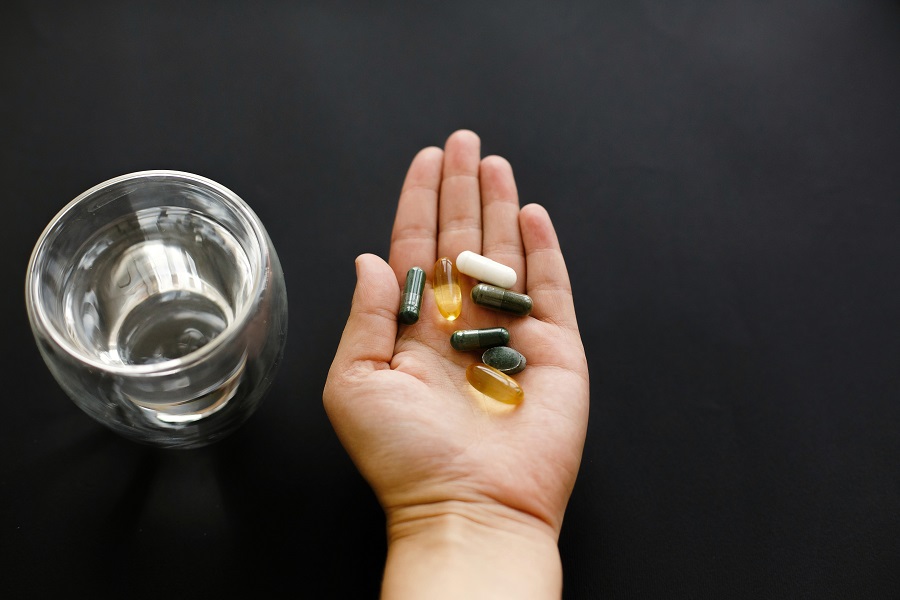If you’re trying to build muscle yet not seeing the progress you desire, it may be for various reasons. From poor nutrition habits to inadequate rest and recovery, there are many factors that might be preventing your goal from becoming reality. This article will explore why muscle growth isn’t happening and some possible solutions and look into how diet plays a role in body composition change and how an appropriate training regimen can help break through plateaus. With the right approach under your belt, sending those gains skyrocketing is easier than ever!
Contents
- 1 How Hard Is It To Build Muscle?
- 2 Reasons You’re Not Building Muscle
- 3 Lack Of Proper Nutrition
- 4 Inadequate Exercise Routine
- 5 Insufficient Rest and Recovery
- 6 Genetics and Age
- 7 Medical Conditions and Medications
- 8 Poor Form and Technique
- 9 Inconsistent Effort
- 10 Psychological Factors
- 11 Reflect On These Factors To Start Building Muscle Today
How Hard Is It To Build Muscle?
Building muscle is no easy task – it requires dedication, discipline, and the right approach. Nowadays, many internet scams and trendy diets are claiming to help people build muscle overnight. Unfortunately, these do not guarantee results and can even harm your health. True muscle growth requires a combination of proper nutrition, targeted weight training with adequate rest between sessions, and sufficient hydration. The amount of time and effort you put in will determine your success; if done correctly, however, you should begin seeing visible results shortly after!
Reasons You’re Not Building Muscle
It’s no secret that proper nutrition and exercise are essential for building muscle. Without them, progress can be stunted or non-existent. The following are some of the most common issues that may arise when attempting to add mass:
Lack Of Proper Nutrition
One of the most critical factors in building muscle is proper nutrition. You won’t have the energy or nutrients necessary to support muscle growth if you’re not eating enough. Conversely, if you’re eating too much, you may gain weight, but not muscle mass. To build muscle, you need to be in a calorie surplus, which means consuming more calories than you burn.
In addition to calories, you also need to ensure you’re getting enough protein in your diet. Protein is essential for muscle growth and repair, and if you’re not consuming enough, your muscles won’t be able to recover and grow. Generally, you should aim to consume at least 1 gram of protein per pound of body weight daily.
Carbohydrates are also an important part of a muscle-building diet. Carbs provide the energy necessary for intense workouts, and without enough carbs, you may not be able to push yourself hard enough to stimulate muscle growth.
If you’re unsure how many calories, protein, and carbs you should consume, consider working with a registered dietitian or nutritionist who can help you develop a personalized plan that meets your needs.
Inadequate Exercise Routine
Another common reason people struggle to build muscle is an inadequate exercise routine. If you’re not following a structured workout plan, you may not target the right muscle groups or provide enough stimulus to promote growth. A good workout plan should include a variety of exercises that target all major muscle groups and should be structured in a way that allows for progressive overload.
Progressive overload is the gradual increase in weight or resistance used during exercises. This gradual increase challenges the muscles to work harder and adapt to the new demands, leading to muscle growth over time. If you’re not challenging your muscles with progressive overload, they may not have the necessary stimulus to grow.
It’s also essential to focus on the right type of exercise. While cardio and other types of exercise are important for overall health and fitness, they may not be the best for building muscle. Resistance training, such as weight lifting, is the most effective way to stimulate muscle growth.
Insufficient Rest and Recovery
Muscles grow and repair during periods of rest, not during exercise. If you’re not getting enough rest and recovery time, your muscles may not have the opportunity to repair and grow. Ensure you get enough sleep each night, as this is when your body does most of its repair and regeneration.
Overtraining is another common problem. While it’s important to challenge your muscles with exercise, you also need to allow them time to recover. If you’re not taking enough rest days or doing too much volume in your workouts, you may not be allowing your muscles enough time to recover.
Genetics and Age
Unfortunately, genetics and age can also play a role in how much muscle you’re able to build. Some people may have a genetic predisposition to building muscle quickly, while others may struggle to build muscle no matter how hard they try. Similarly, as you age, you naturally lose muscle mass and strength, making it more difficult to build muscle.
While you can’t change your genetics or age, you can still work to optimize your muscle-building potential. By focusing on proper nutrition, exercise, and rest, you can maximize your muscle-building potential and make the most of the muscle you do have.
Medical Conditions and Medications
Certain medical conditions and medications can also interfere with muscle growth. Hormonal imbalances, such as low testosterone or thyroid disorders, can make it more difficult to build muscle. Similarly, some medications, such as corticosteroids or certain antidepressants, can affect muscle growth and repair.
Talk to your doctor if you suspect that a medical condition or medication may interfere with your muscle-building efforts. They may be able to adjust your medication or provide additional treatment to help you reach your muscle-building goals.
Poor Form and Technique
Proper form and technique during exercise are essential for maximizing muscle activation and preventing injury. If you’re not using proper form during exercises, you may not target the right muscles or provide enough stimulus for growth. Similarly, poor technique can increase your risk of injury, setting you back in your muscle-building efforts.
If you’re unsure if you’re using proper form and technique, consider working with a personal trainer or coach who can help you fine-tune your technique and prevent injury.
Inconsistent Effort
Building muscle takes time and consistency. If you’re not consistently sticking to a workout and nutrition plan, you may not give your muscles enough stimulus to grow. Similarly, if you’re not consistently challenging yourself with progressive overload, you may not provide enough stimulus for growth.
Lack of dedication and discipline in training and eating habits can also interfere with muscle-building progress. If you’re not willing to put in the time and effort required to build muscle, you may not see the results you’re looking for.
Psychological Factors
Psychological factors can also play a role in muscle-building progress. Lack of motivation or confidence can make it difficult to stick to a workout and nutrition plan, hindering progress. Anxiety or stress can also interfere with muscle-building progress by increasing cortisol levels, promoting muscle breakdown.
If you’re struggling with psychological factors interfering with your muscle-building progress, consider talking to a mental health professional. They can provide strategies and support to help you overcome these obstacles and reach your muscle-building goals.
Reflect On These Factors To Start Building Muscle Today
Building muscle is a complex process that requires attention to several key factors, including proper nutrition, exercise, rest and recovery, genetics and age, medical conditions and medications, proper form and technique, consistent effort, and psychological factors. By addressing these factors and optimizing your muscle-building efforts, you can maximize your potential and reach your goals. Remember that building muscle takes time, so be patient and persistent. Dedication and effort can achieve the muscle mass and strength you desire.











